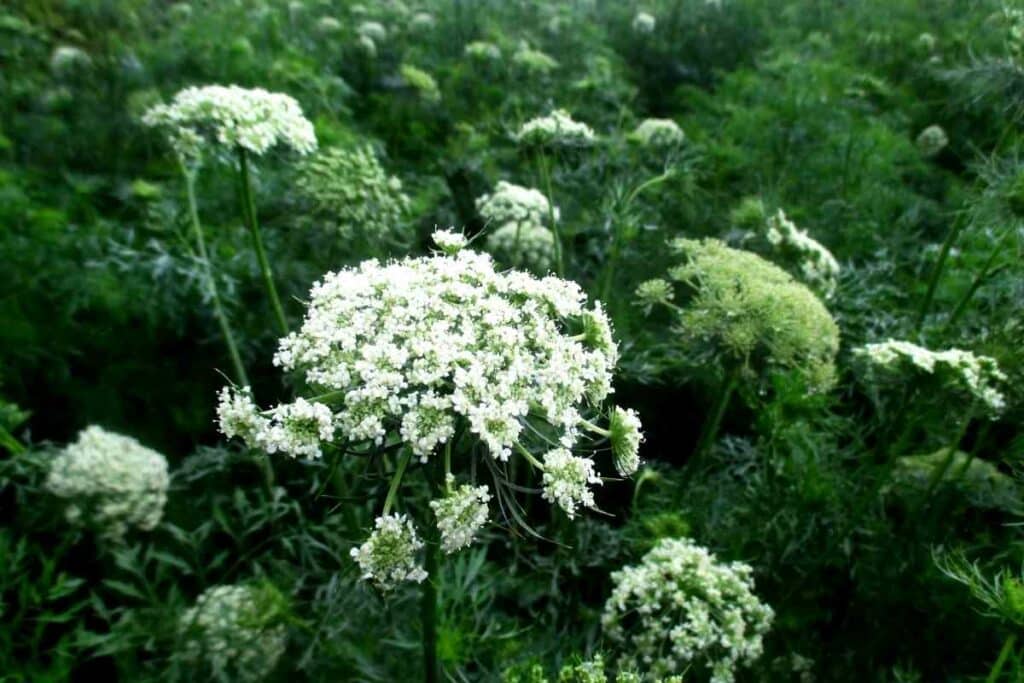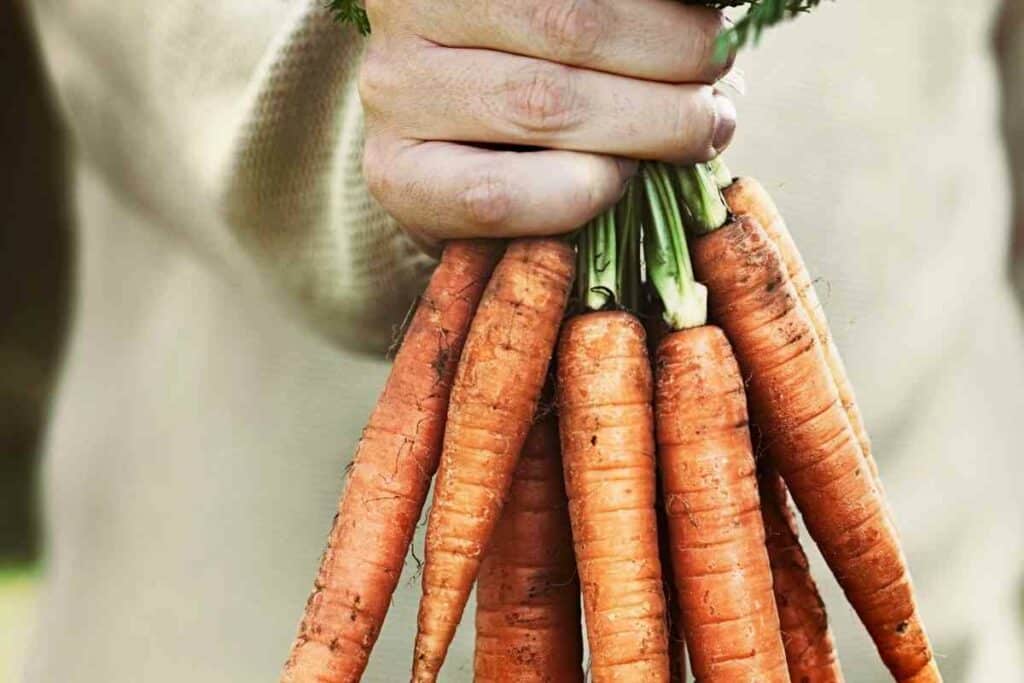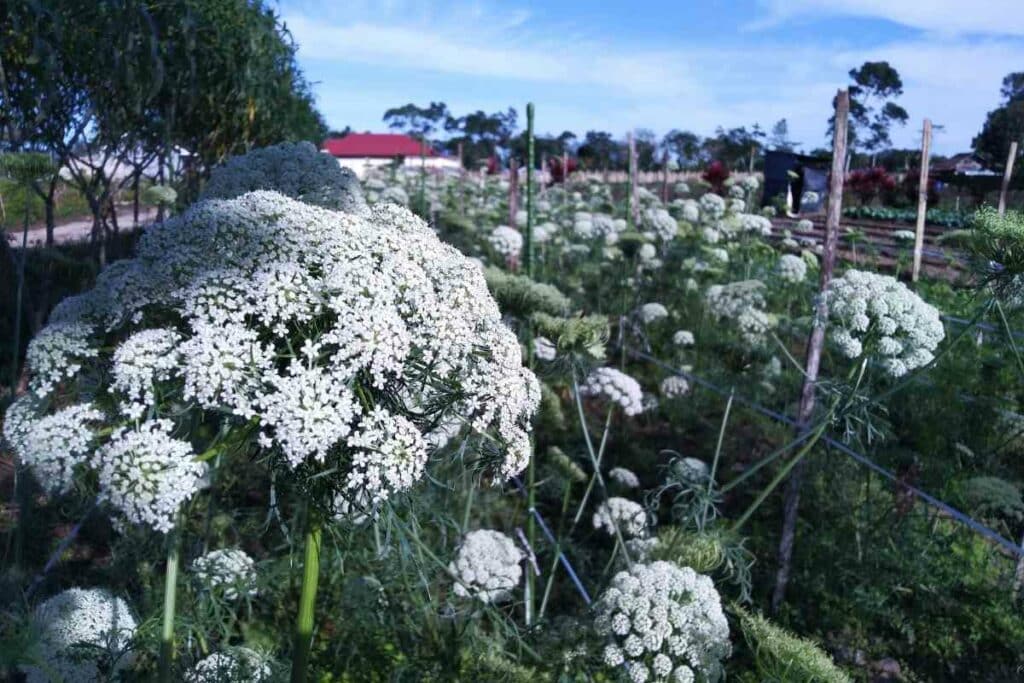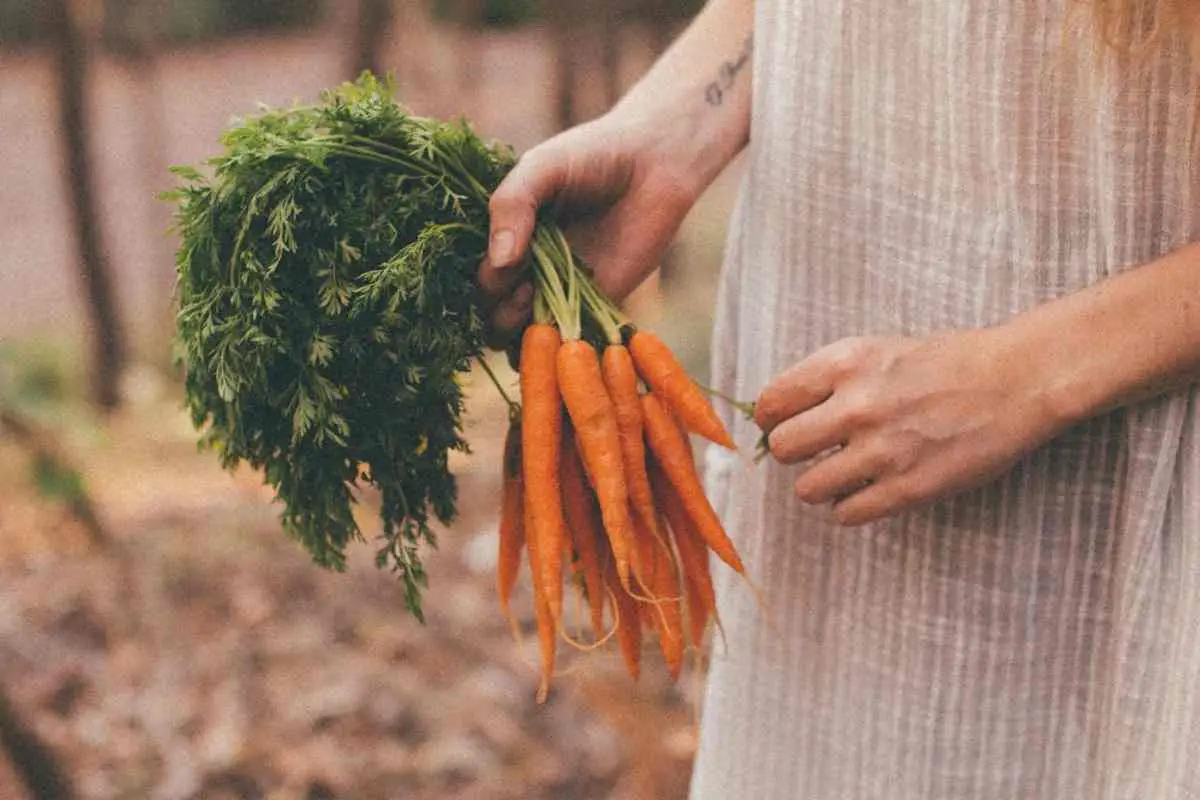It’s pretty simple to grow your own veggies when you are armed with the right knowledge.
What’s more, it’s something that a lot of people are keen to do to be more self-sufficient.
While getting a veggie patch laid in your yard isn’t the most difficult task in the world, understanding the way that certain vegetables grow does require a little education.
The last thing you want is to grow a bunch of veggies only to find that they aren’t good to eat.
When it comes to carrots, there is a risk of bolting; but can you eat carrots that have bolted?
No, it is not a good idea to eat carrots that have bolted. Once they bolt, the carrot will become very fibrous and woody making it unsuitable to eat.
Bolting is usually a cause of unexpected weather and while you cannot prevent bolting, there are ways you can ensure that at least some of your crop does well.
What Is Bolting And What Causes It?
Bolting is when a plant speeds through its growing cycle more quickly than usual.

In the case of carrots, this means that they will flower and go to seed long before they are supposed to.
The process of bolting is usually triggered by a cold spell. This typically happens when juvenile plants are exposed to an unexpected cool snap in the early spring.
You’ll find that certain varieties of carrot have a greater tendency to bolt, including:
- purple carrot
- and Kuroda carrots
What’s fascinating is why carrots, and other plants bolt.
This is a survival technique in which the plant tries to bring forth the next generation of seed when it is threatened by its current conditions.
For example, a cold snap.
It’s pretty easy to tell if a carrot has bolted since one of the first things you will notice is that the plant begins to flower.
Carrots are biennial plants which means that they have a two-year life cycle:
- Whereas an annual plant would naturally flower in its first year, biennials, like carrots, wouldn’t usually flower until the second year.
- On the other hand, carrots may bolt when an unexpected period of premature warm weather comes along.
This is also common during spring and will trick the carrots into releasing seed energy much sooner than they otherwise would.
Can You Eat Bolted Carrots?
If you have been looking forward to cooking up a storm with your home grown carrots only to find that they have bolted, we understand your frustration.

It’s important to keep in mind that eating carrots that have bolted doesn’t pose a risk to your health, so there’s no worry there.
That said, the carrots won’t be very tasty and the texture will be incredibly unpleasant so it’s unlikely that you’d want to eat them.
Once carrots begin to send up their flowers, the main part of the plant; the bit that we eat, changes texture dramatically. It begins to become very woody, fibrous, and tough.
This alone makes it pretty much inedible but you must also consider that the carrot will often lose its taste or even become very bitter.
Now, there may be an exception to this and that is if you manage to catch the plant in the earliest stages of bolting.
In this case, it may be possible to cut off the flowers in order to reverse the process. This isn’t 100% reliable but in any case it’ll give you a chance to salvage the crop.
Sometimes, you may be fortunate enough that the plant continues its regular growing cycle and bolting is stopped.
In Other Cases: You’ll find that cutting the flowers will simply give you a little more time to harvest your carrots before they spoil completely.
How Can I Stop My Carrots from Bolting?
One of the best ways to ensure that your carrots don’t bolt is to look for varieties that are less prone to bolting.
However, since there is a chance to some degree or another with all types of carrot, how you sow them can make a huge difference.

For example, you may find that bolting is more easily prevented by planting early in spring.
This ensures that carrots that are prone to bolting will grow during the late spring, when cold spells are far less likely.
You might also plant them in the summer so that they grow just as we move into fall.
Since temperature is one of the leading factors to cause bolting, keeping the soil temperature consistent is essential.
Doing this is as simple as adding some mulch over the surface and ensuring adequate watering.
When sowing your carrots, it is a good idea to spread out the planting:
- Don’t plant all of your carrots at once because if bolting does happen, it’ll likely affect all of the plants.
- Instead, try planting several batches of carrots over the course of a few weeks. This way, they will all be at different points in their growing cycle and, should the weather change, not all will be affected by this.
Conclusion
Bolting is a process in which carrots, and other plants, speed up their growing in order to go to seed.
This usually happens when juvenile carrots are exposed to cold or warm weather at the wrong time.
While it is possible to plant your carrots in such a way to avoid this, bolting isn’t always unavoidable.
That said, it might be possible to snip off the flowers to give yourself more time to harvest the crop.
